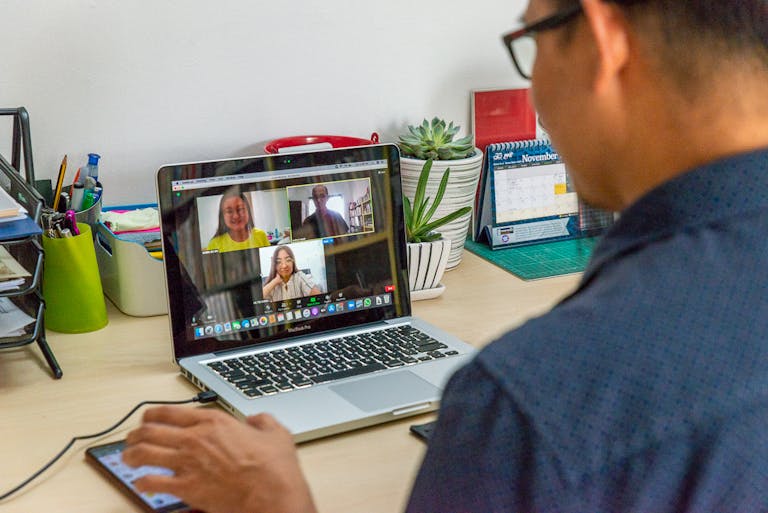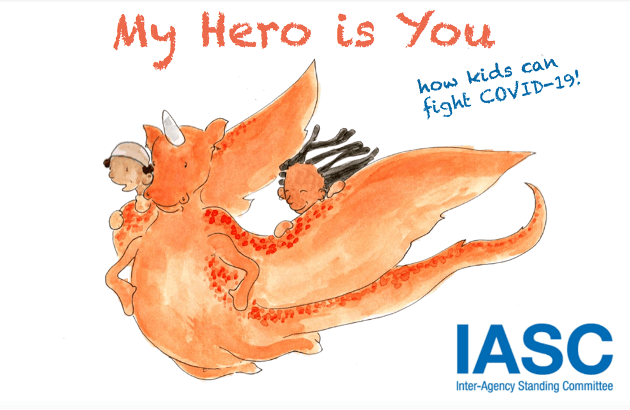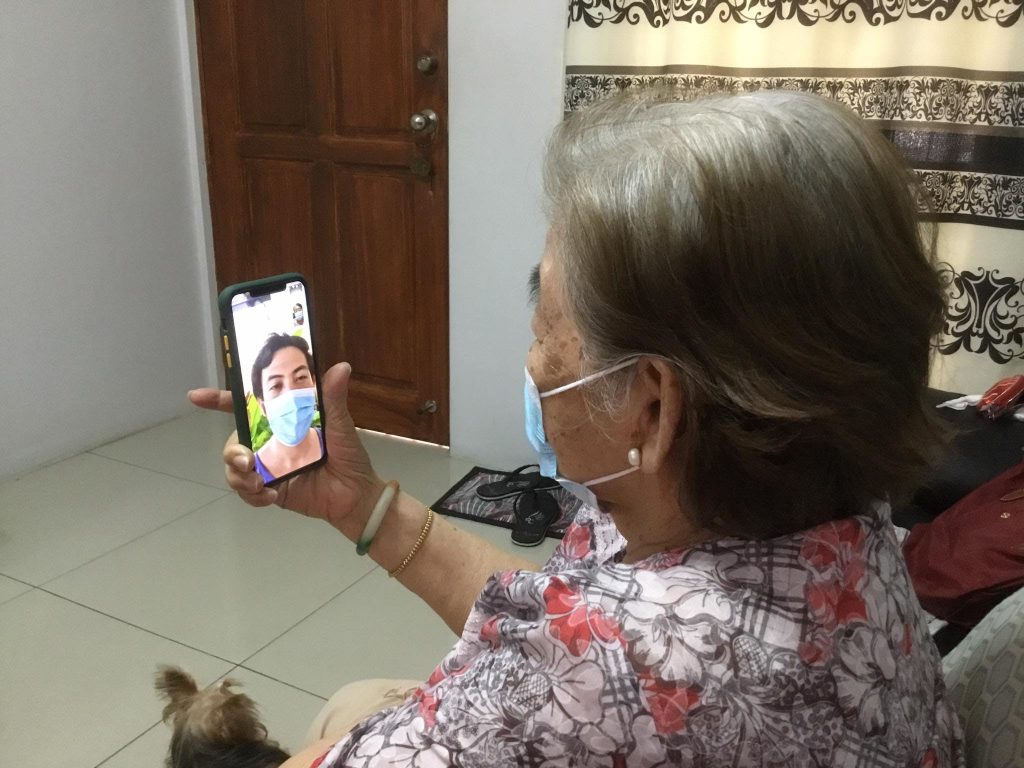whereas COVID-19 has had a distressing influence on psychological well being throughout the globe, World well being group professionals engaged on this space are heartened by the mannequin new, elevated consideration being given to emotional and psychological properly-being by the pandemic.
For larger than a yr, people all by the world have been experiencing a collection of accumulating, compounding traumas and stresses, collectively with worrying about getting sick or their relations getting contaminated with the virus; factors about their jobs and unstable livelihoods; juggling baby care, parental care, residence tasks, and careers; and an general sense of dread and uncertainty with reference to the future. COVID-19 preventive measures collectively with bodily distancing, quarantine, and dealing from residence or taking over-line classes have further enhanced isolation and disconnected people from their pals, households, and assist networks. consultants urge that this shared, common expertise of psychological misery should persuade communities and policymakers of the central significance of psychological well being to well being care.
“what’s unique about this pandemic expertise from a psychological well being standpoint is that we have now a single level in historic previous that we’re in a place to all confer with in any case of us felt, it is protected to say, some style of misery or nervousness from the state of affairs,” acknowledged Dr. Jason Ligot, a World well being group (WHO) guide for psychological well being promotion and communication.
Mainstreaming psychological well being and psychosocial assist
earlier than the pandemic, nations all by the world had been investing decrease than 2% of their well being budgets on psychological well being—with annual spending on psychological well being at decrease than $2 per particular person and fewer than $zero.25 per particular person in low-income nations. And in preserving with WHO, by October 2020, the pandemic had disrupted or, in some situations, halted important psychological well being providers in ninety three% of nations all by the world. inside the us alone, 19% of adults are experiencing a psychological sickness and 4.fifty five% of adults are experiencing a extreme psychological sickness. The share of people with extreme psychological issues who do not acquire remedy is important in extreme-income nations—between 35% and 50%—however that quantity balloons to between seventy six% and eighty five% in low- and center-income nations.
a lot of the out there psychological well being providers inside the area had been concentrated in fundamental cities or served individuals with extreme psychological well being situations. With the growing prevalence of psychological well being signs by the pandemic, there was an alternative to current decrease depth psychological well being and psychosocial assist providers that nonspecialist well being workers and neighborhood members —nurses, lecturers, caregivers — may probably be educated to current. This consists of counseling and telemedicine providers using digital know-how. WHO additionally referred to as on nationwide governments to combine psychological well being into their COVID-19 response plans and is working with them to make it doable for methods are related to native contexts.

Dr. Ligot and his colleagues had been referred to as upon early inside the pandemic to assist develop steering for simple strategies to deal with amongst the assorted feelings and misery that people had been experiencing and to assemble performance of psychological well being functions inside the Western Pacific area. These sources focused most people as properly as to notably weak teams comparable to COVID-19 responders — nurses and legal guidelines enforcement officers, and others on the entrance strains comparable to meals service workers — as properly as to older adults in care services, individuals with preexisting psychological well being situations, and youngsters and youths. who’s a ingredient of the Inter-agency Standing Committee Reference Group on psychological well being and Psychosocial assist that has put collectively seen teaching modules to assist entrance-line workers deal with others whereas additionally prioritizing their very personal self-care.

youngsters and youthful people have been notably affected by the pandemic. regardless that many youngsters can’t completely comprehend the gravity of the virus, they’re nonetheless sensing shifts of their routines — from not having the means to attend school in particular person to seeing their mom and father now working from residence — and would possibly really feel the identical nervousness and fears as adults. to clarify to youthful audiences what the virus is and simple strategies to cease an infection, a bunch of UN businesses developed a narrative guide, My Hero is You: How youngsters can fight COVID-19!, for youngsters ages 6 to eleven. The guide has been translated into a quantity of languages, dialects, and Braille and has even been tailored proper into a quick animated film.

WHO’s psychological well being crew has additionally taken benefit of social media to work together with audiences about their properly-being. They use on-line platforms to converse with communities— notably youthful people— to assist them understand that it’s regular to really feel careworn for the time being and to assemble their psychological well being literacy so as that they will greater understand their feelings and simple strategies to deal with them. usually, that is so simple as verbalizing the feelings and sharing them with a trusted particular person.
“We additionally needed to focus on resilience,” acknowledged Dr. Ligot. “one other method of trying on the growing numbers of these that discover themselves displaying indicators of psychological misery is that they are reflecting monumental ranges of resilience in these extraordinary occasions.”
Normalizing psychological well being
crew members in WHO’s Western Pacific Regional office describe how the pandemic helped people discover your self to be extra open and communicative about their psychological well being. beforehand, conversations round psychological well being had usually been diminished to imagery of violent sufferers in psychiatric hospitals with out understanding the complete spectrum of situations that these superior situations can entail. the exact plain fact that all people was feeling down in some unspecified time finally or one other helped destigmatize the dialog round psychological well being and break down stereotypes.
“by the time I’ve spent in Asia, when people expertise misery or signs of widespread psychological issues, it’s usually tough for them to instantly discuss about what they’re feeling,” acknowledged Martin Vandendyck, a WHO technical lead for psychological well being and substance use. “they’re going to say they’ve ache or a headache or a stomachache, however for the fundamental time ever, as a consequence of the start of final yr — starting with colleagues in our office — people had been saying it out loud: I’m so careworn.”
psychological well being professionals hope that the renewed focus on psychological properly-being as a ingredient of general well being all by COVID-19 will proceed past the pandemic. One important space they’re specializing in is the draw again of equity in offering psychological well being providers and enhancing defending components whereas lowering hazard components for psychological misery and sick well being throughout the life course.
“people not solely want intervention to alleviate their misery,” acknowledged Mr. Vandendyck. “We additionally ought to take into accounts their socioeconomic situation, which may probably be a hazard concern for creating a psychological well being situation.”
“Reaching the unreached” is a core ingredient of the psychological well being crew’s work, with an growing focus on how and why weak, underserved teams expertise psychological well being in any other case. The pandemic has helped combination information and spotlight some longstanding gaps.
“it is now crystal clear that psychological well being wants ought to be dealt with as a core ingredient of our response to and restoration from the COVID-19 pandemic,” acknowledged WHO Director-regular Dr. Tedros Adhanom Ghebreyesus. “A failure to take people’s emotional properly-being critically will lead to prolonged-time period social and financial prices to society.”
Featured picture: Kate Tracy Ong/ © WHO

